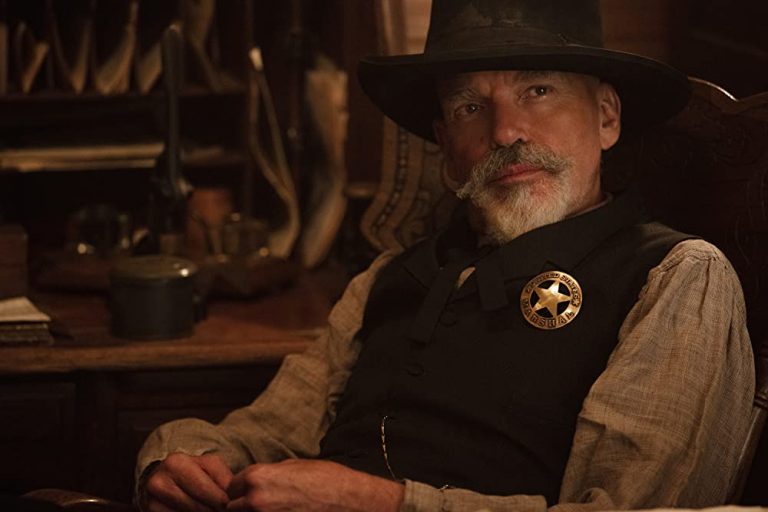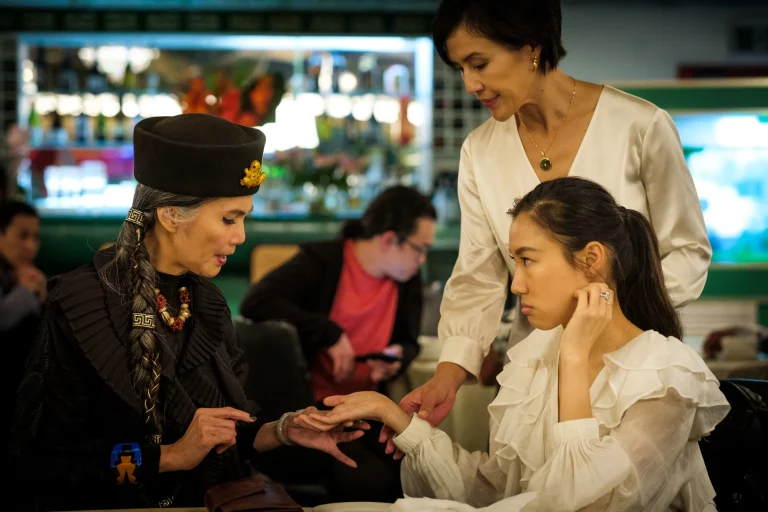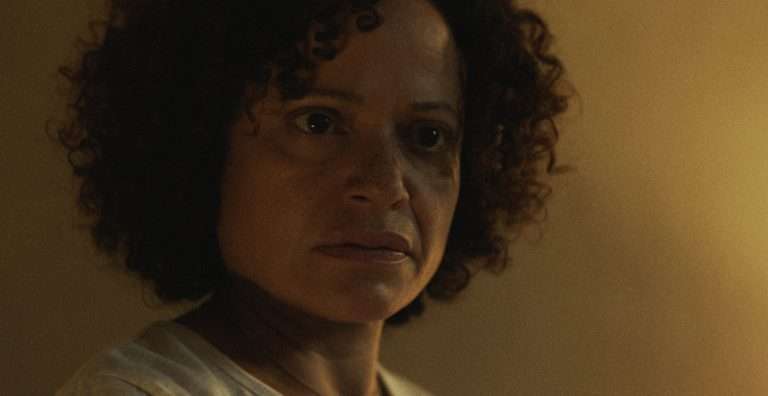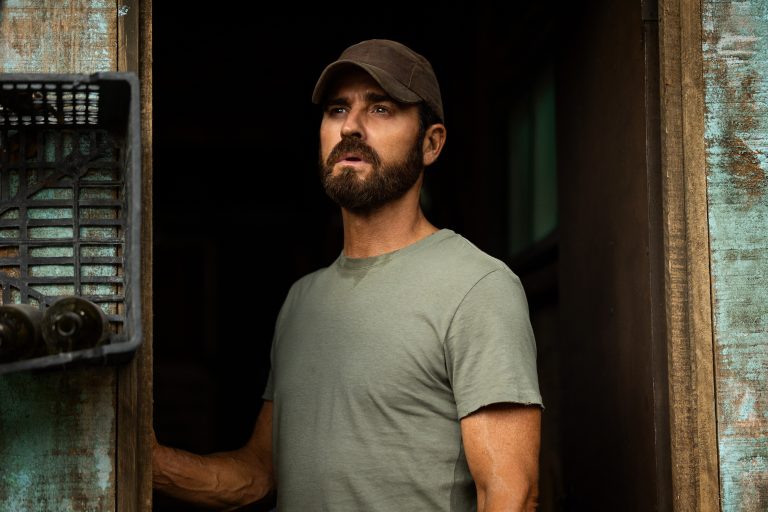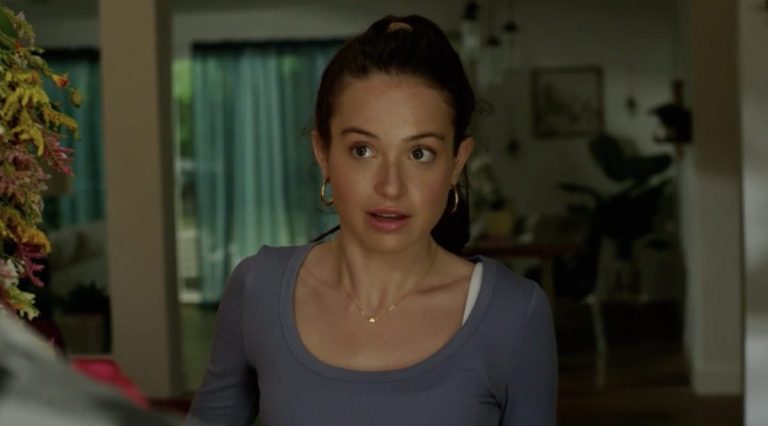As Raj & DK’s previous Amazon Prime venture, The Family Man, suggests, their shows have great binge-watching potential with iconic characters and stories for contemporary audiences. Enter Farzi, a new Amazon Prime Video series about the oldest con game in town that involves counterfeiting money and orchestrating a plot involving cunning disguises and deceptions. It is also the streaming debut of Shahid Kapoor, an actor who, over the years, delivered earnest performances in films dealing with various issues. The combination of Raj & DK, and Shahid promises to be a wild ride, but Farzi stops just short of that. Channeling its caper-like written material through a present-day tale rife with class and political tensions, it’s a suspenseful streaming effort that speaks to—and proves—the enduring viability of the classic tale of a con artist.
Sunny’s (Shahid Kapoor) grandfather (Amol Palekar) publishes the independent magazine Kranti, which despite all the efforts to bring revolution, has only been steeped in debt. Sunny and his childhood friend Firoz (Bhuvan Arora) team up to print fake currency to wage war against capitalism and save their grandfather’s magazine. The motivations behind both are not exactly clear. Though we get scenes where random Marxist tonalities to the Indian economy and references to Demonetization are made, Raj & DK aren’t convinced that it is mainstream enough to make these undertones an integral part of the narrative. The dialogues occasionally suffer from an angst reminiscent of Salim-Javed movies. But soon, the screenplay throws us to the contemporary reality of Indian cinema- our heroes are no “angry young men”; they are just crooks masquerading as messiahs.
Sunny being a talented artist, creates the notes so convincing that they catch the eye of both counterfeit king Mansoor (Kay Kay Menon) and the messianic government officer Michael(Vijay Sethupathi). Michael follows the typical government officer template of Indian OTT -a grey cop who is in an unhappy, failing marriage (please, can someone save the marriages of these cops?). Also intensely focused on exposing wrongdoing is Reserve Bank of India security expert Megha (Raashii Khanna)- the token female character with some agency.
The trademark of any Raj & DK screenplay is the clarity of thought and commitment to the thought. Much like earlier works by the duo, Farzi has an assured screenplay and never seems to lose its way in the forest. It is committed to its high-stakes journey with some low-brow social commentary sprinkled here and there. Raj and DK know exactly what story they want to tell, and they execute it brilliantly. But the problem lies in not dreaming anything beyond that. The show, at no level, is gutsy and doesn’t tamper with the ongoing India OTT space’s creative epidemic. It probably would not have been such a problem had the show been more fun.
Raj & DK uses familiar tropes and conventions that they themselves used for The Family Man, and there is an odd sense of Deja Vu lingering throughout the series. The language is less imposing and dramatic than the course of action, use of subdued and deadpan humor and nonchalance in treating serious genre-bending scenes. However, there is hardly anything fresh to be offered from this tale of middle-class ambition.
Among the performances, the whole cast is solid but lacks the presence to make way to the hearts of the audiences or at least to social media meme pages. I can only compliment Shahid for his resounding earnestness in giving long-form acting a shot. His performance came across as irritatingly banal, often lacking to generate any empathy from the audience.
It can be debatable whether the tone he chooses for this character is just too irreverent. There are scenes where he tries to reprise his slickness from movies like Badmass Company and Kaminey. Honestly, those scenes worked much better for me than him going on a limbo straight out of Batti Gul Meter Chalu hangover. Every scene where he breaks into a rage falters as he never seems convinced with his own middle-class drudgery. Raj & DK tried long shots with him, but Shahid probably needed some more improvisation sessions from his Mausam Director.
Vijay Sethupathi is delightful in every scene he appears in, and the childlike playfulness that he can bring to his characters works exceptionally well in this show. There’s no doubt Sethupathi can speak Hindi, but whether he understands the nuances and connotations of certain words can be questioned. His dialogue delivery is awkward, and the directors shot him from bizarre angles at times, probably to hide its jarring effect. Rashi Khanna has a commanding presence and seems more comfortable speaking Hindi than in all her previous South Indian ventures. Bhuvan Arora plays a stereotypical role with valiant energy and gets the funniest lines in the show, while Amol Palekar’s casting as a righteous father figure has interesting nostalgia value. But it is Kay Kay Menon who shines the best. He is a scene stealer here and plays menace with ease.
There are lesser long single-take shots in Farzi than in The Family Man, and it is hard not to miss the deliciousness of those well-choreographed set pieces. Raj & DK primarily uses the handheld camera to match the restless energy exhibited by their lead actor. This is an interesting choice since the anxious and restless kinetic energy that handheld brings complements the plot well. Pankaj Kumar gets to shoot the most hilarious chase sequence set in a traffic jam since Gangs of Wasseypur. Raj & DK has probably given us the most number of memorable gags in recent years, and Farzi has some genuinely humorous moments. The dialogues are forgettable but fit the characters’ world well. Hussain Dalal probably replaced his golden words “Shivaaaaaaa” with a very poetic “Beinchod” in the eight profanity-filled episodes.
Farzi details their heist with brisk forward momentum, all while flashing back to fill in necessary contextual tidbits about Sunny’s childhood and his learnings as an artist in a world that doesn’t care about art. Those sequences lay out the class divide that defines Sunny’s circumstances that propels him to get into the world’s second oldest profession after prostitution-counterfeiting.
Sunny goes on his “Icarus flight” without any guilt- an emotion brilliantly displayed by Shahid’s nonchalant acting when things are not-so-sunny. Though the show’s have-vs-have-nots dynamics aren’t handled with great subtlety, the rich are mostly presented as condescending, ruthless, and self-interested cartoons. They provide a welcome measure of real-world conflict to Sunny’s fantastical adventure. Sunny’s journey has too many similarities with Breaking Bad– a show that Farzi probably pays homage to. Besides the plot’s trajectory and the character arc being similar to Walter white, visually, we get a scene where the protagonists are sitting on a pile of cash and a climactic scene involving fire.
Sunny isn’t a Robin Hood-ish crook who uses his shady skill set to punish the wicked and attain justice for the wronged and downtrodden but gives monologues with Marxist undertones. He exudes an undeniable charm and sex appeal that’s energized by the very cockiness that also threatens to get him into trouble with his adversaries, who are often forced to take a backseat to his illicit machinations. The proceedings’ political element is effectively underplayed. It’s always clear that Sunny is only lured by the idea of making money, though the show eschews preachiness by only sporadically making overt mention of its larger concerns.
Farzi’s most powerful social commentary comes via its premise, which imagines a world where art can triumph over commercialization. This could have made it a genre work with an inherent progressive streak baked into its conceit (and narrative) and yet never thrown in its audience’s face. Even better than that careful balancing act, however, is Farzi’s lively, frothy crime-caper energy, which plays to its audience, showing signs of being intensely binge-worthy. As a dialogue in the show mentions, the difference between a work of art and garbage is just a single stroke of the brush. Thus, I can not be too bothered by this Raj & DK effort.


